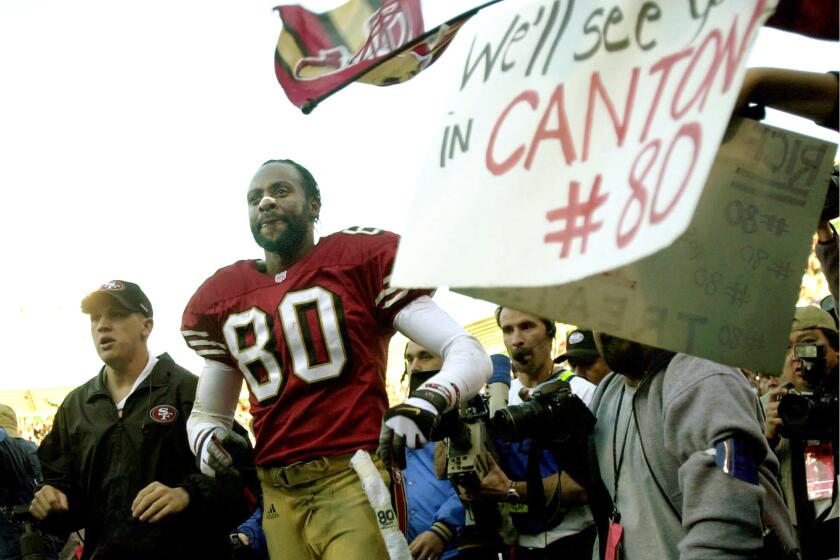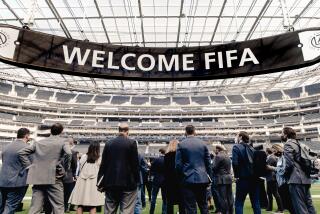Ask Sam Farmer: Are the days of the open-air NFL stadium numbered?
Have a question about the NFL? Ask Times NFL writer Sam Farmer, and he will answer as many as he can online and in the Sunday editions of the newspaper throughout the season. Email questions to: sam.farmer@latimes.com
Do you think the days of the open-air NFL stadium are numbered? Seems like the closed or retractable roofs are all the rage now. The new L.A. venue and the Raiders’ Las Vegas digs will have some sort of covering. I can see new stadium situations developing in Washington, D.C., and Buffalo in the next decade being domed. To me, I always thought it was great to see that late afternoon hazy sun gleaming off the Rams, Chargers and Raiders helmets in the Coliseum on TV when it’s freezing outside here on the East Coast. I will miss that.
Willie Gabel, Annapolis, Md.
Farmer: First a bit about Stan Kroenke’s $5-billion stadium in Inglewood, home to the Rams and Chargers starting next season. The venue will feature a roof that’s 275 feet above the playing field and encompasses the stadium and a surrounding plaza, providing weather protection but remaining open on the sides. The roof has metal borders, but the area over the playing field is made of a transparent material called ETFE, which is as clear as a car windshield and strong enough to support the weight of a vehicle. The design allows for breezes to flow through the building, enhancing the outdoor feel.
Now, to address your question, I turned to Mark Williams, director of sports and entertainment business development for HKS, which designed the SoFi Stadium in Inglewood, as well as AT&T Stadium for the Dallas Cowboys, and Lucas Oil Stadium for the Indianapolis Colts.
In the future, will every team call a dome home?
Want to know what’s really going on with a football team? Ask the equipment manager. Former 49ers assistant Ted Walsh talks about their glory days.
“It’s an interesting situation because on one hand, people love to experience football outdoors,” Williams said. “But when you say that, the other thing that these venues are becoming more and more is a place to hold more than 10 football games a year. They need to work at different scales, different configurations, different capacities and different event types. They should be used for 365 days a year, so you need some level of assurance for climate.
“So what we did for Mr. Kroenke is a great example. That’s the first 3-million-square-foot, indoor-outdoor venue in the NFL. The beautiful roof helps provide assurance for certain events, but then the breezes, the natural air is still coming through the sides. So I think it’s evolving into a more sophisticated environment, whether that’s movable pieces or openness of outside and inside, that’s the direction it’s all moving.”
::
When a kickoff goes into the receiving team’s end zone, why can’t a kicking team recover the ball as an onside kick? That’s exactly what happened when I was at a high school game over 70 years ago. I see many games when the ball goes into the end zone and the receiver doesn’t bother covering it an the official calls a dead ball?
Milt Miller, Encino
Farmer: That’s a recent rules adjustment that further encourages touchbacks in an effort to make the game safer.
Basically, as soon as a kickoff hits or crosses the goal line, touching the ground, it’s dead and doesn’t need to be downed by the receiving team. It used to be that way just for punts, but now it’s in place for kicks too. The rule reads: “It is a touchback if the ball is dead on or behind the goal line a team is defending, provided that the impetus comes from an opponent, and that it is not a touchdown or an incomplete pass.”
More to Read
Go beyond the scoreboard
Get the latest on L.A.'s teams in the daily Sports Report newsletter.
You may occasionally receive promotional content from the Los Angeles Times.








